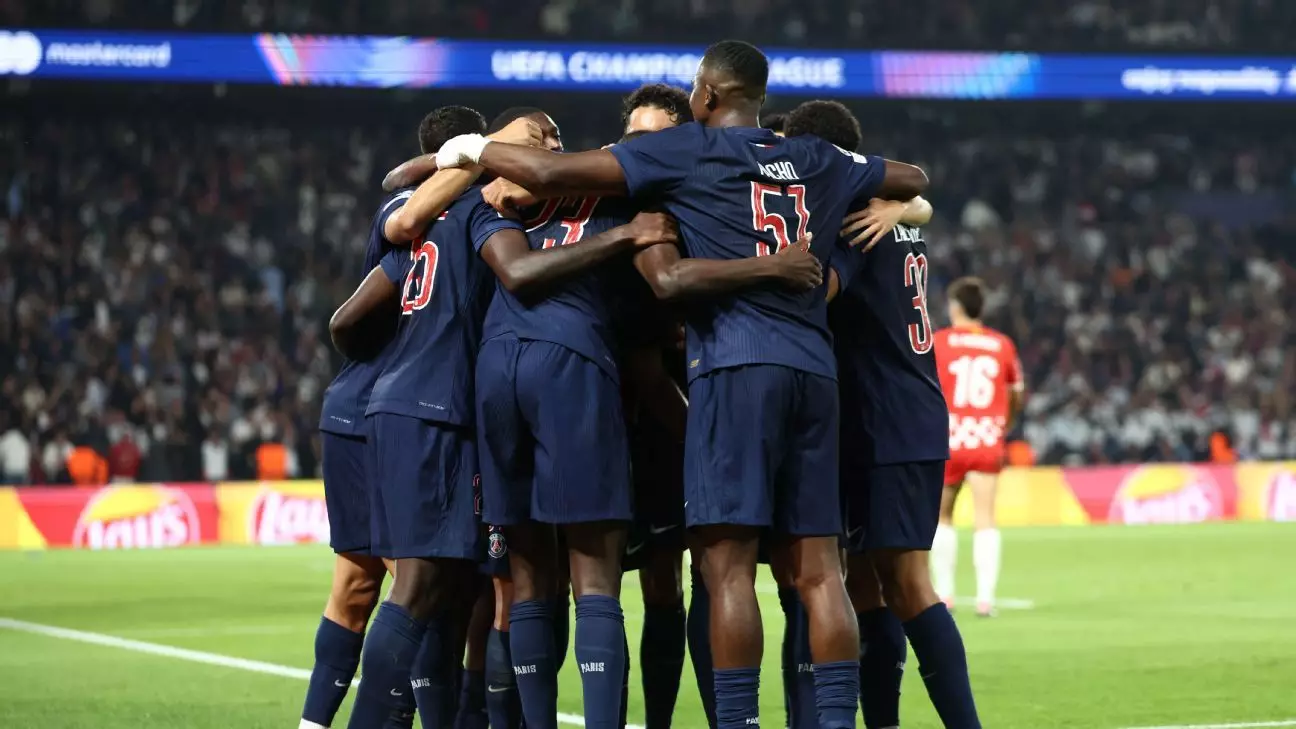The recent events surrounding Paris Saint-Germain’s (PSG) home match against Strasbourg have once again highlighted the troubling issue of homophobic chants in football. This incident occurred during a period of heightened tension as PSG prepared to face their fierce rivals, Marseille, in what promises to be an emotionally charged encounter. The chants, aimed not only at the opposing team but also at former PSG midfielder Adrien Rabiot, revealed the darker side of fan culture in the Ligue 1. Rabiot’s departure to Marseille after a lengthy career in Paris has been treated by some fans as a betrayal, invoking responses steeped in hostility and discrimination.
In response to these incidents, Ligue 1 has issued a strong condemnation of the discriminatory behavior exhibited by segments of the supporter base. The league’s statement underscores a collective commitment across professional football to eradicate homophobia from the sport. It’s clear that such chants are not mere expressions of rivalry but rather contribute to an environment of intolerance and discrimination that the football community at large strives to eliminate. The league’s disciplinary committee has pledged to investigate the matter further, setting a precedent that sends an essential message regarding the zero tolerance approach to bigotry in football.
This isn’t a standalone event; rather, it forms part of a larger narrative within French football. Previous incidents, such as the case of PSG players engaging in offensive chants during a post-match celebration, underline a persistent issue that has plagued the sport. Last season’s disciplinary actions against players highlight the need for accountability, but as is often the case, penalties alone may not suffice to change entrenched cultural attitudes among fans.
Furthermore, while PSG continues to flourish under Qatari ownership, their status as the wealthiest club does little to shield them from the critical dialogues revolving around their fan base’s behavior. The rivalry with Marseille, characterized by decades of animosity, raises the stakes and emotions in these matches and illustrates how such profound passion can, unfortunately, manifest in harmful ways.
Crucially, actions must accompany words if true change is to occur. PSG and Ligue 1 organizations need to engage their communities actively in conversations about inclusivity and respect. Educational initiatives that address the harm caused by discrimination, along with fostering a more welcoming environment in stadiums, are integral to redefining how fans express their passions healthily and acceptably.
As football continues to evolve, so must its supporters. The responsibility lies not only on clubs and leagues but significantly on the fans themselves to create a culture of respect and inclusion. The incident against Rabiot serves as a sharp reminder that the road to eradicating discrimination is long, but one that must be traversed collectively by all stakeholders within the beautiful game.

